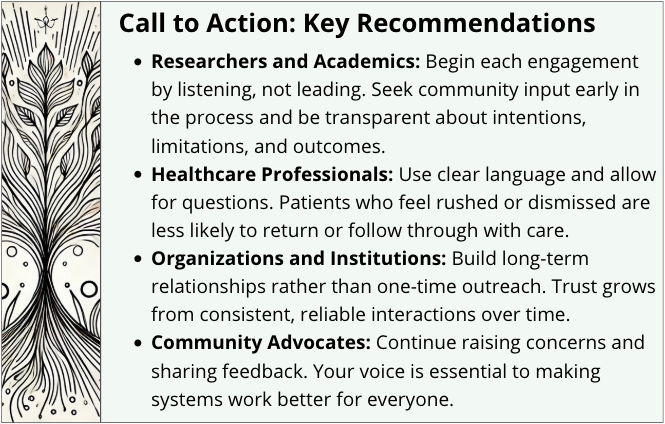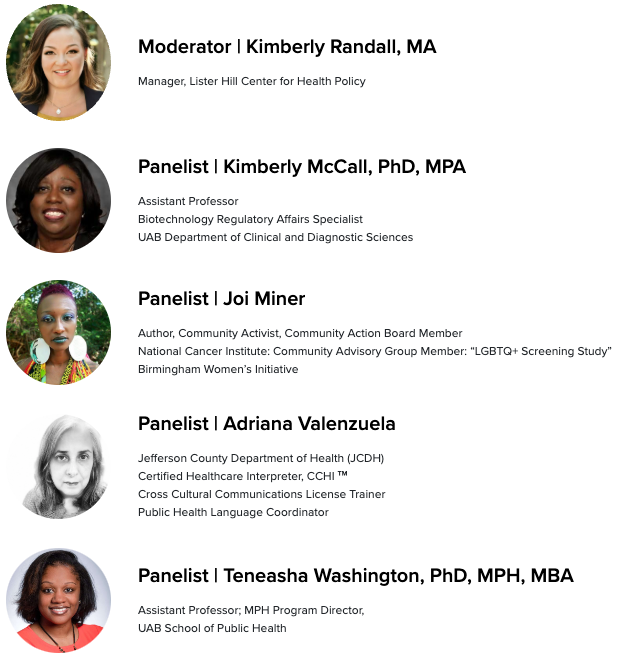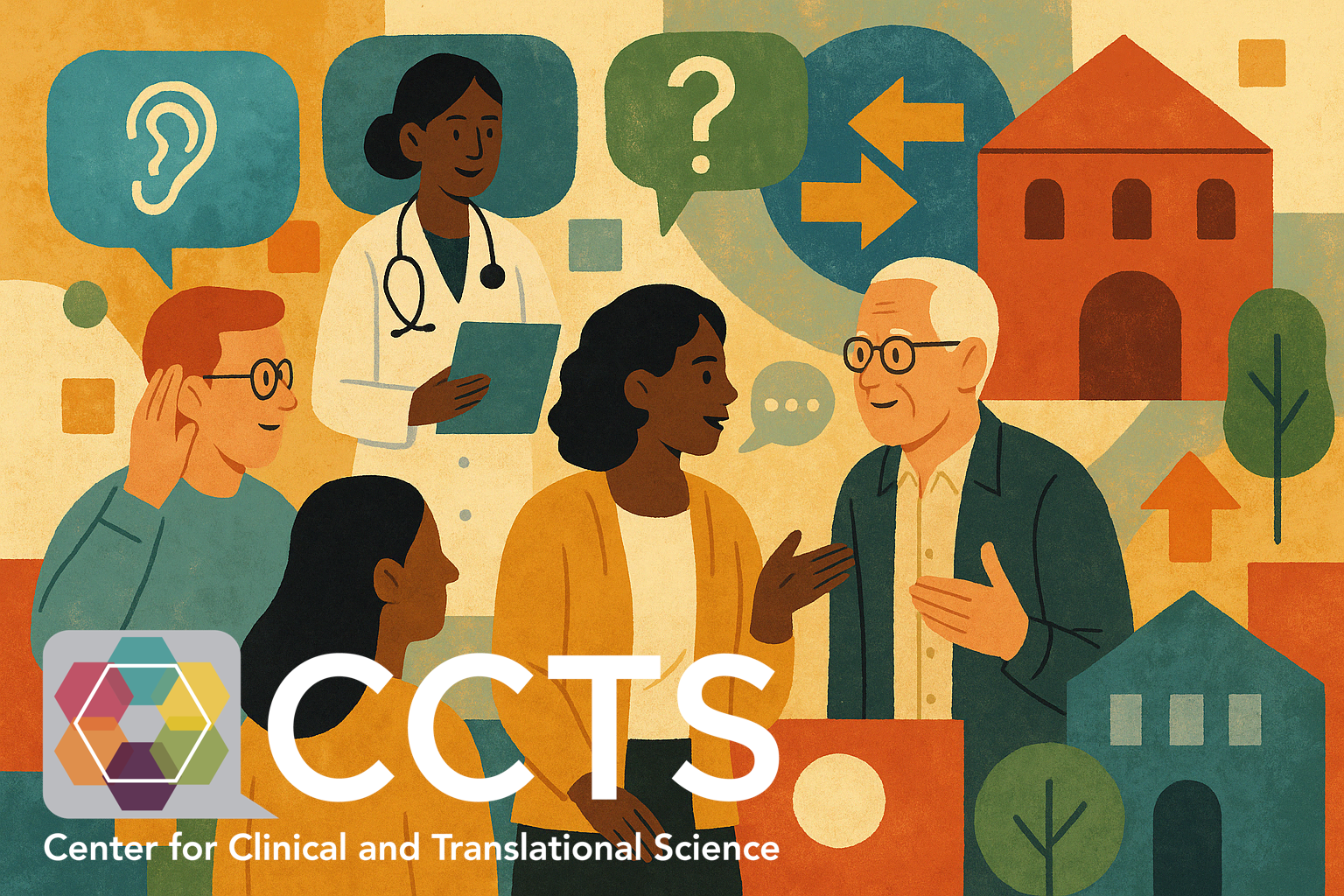 The Center for Clinical and Translational Science (CCTS) recently hosted the latest event in its Community Engagement Institute (CEI) Perspectives series, titled Collaborative Approaches to Building Trust in Communities.
The Center for Clinical and Translational Science (CCTS) recently hosted the latest event in its Community Engagement Institute (CEI) Perspectives series, titled Collaborative Approaches to Building Trust in Communities.
Held virtually on March 21, 2025, the event brought together researchers, healthcare professionals, and community advocates to discuss how collaboration and communication can strengthen trust in public health, clinical research, and care systems.
This event focused on recruitment strategies, barriers to participation, ethical considerations, and community partnerships necessary for fostering equitable participation in clinical research. Moderated by Kimberly Randall, MA, Manager of the Lister Hill Center for Health Policy, the panel featured a wide range of expertise and lived experience:
- Kimberly McCall, PhD, MPA | Assistant Professor and Biotechnology Regulatory Affairs Specialist, UAB Department of Clinical and Diagnostic Sciences
- Joi Miner | Author, Community Activist, and member of the National Cancer Institute's Community Advisory Group
- Adriana Valenzuela | Certified Healthcare Interpreter and Public Health Language Coordinator, Jefferson County Department of Health
- Teneasha Washington, PhD, MPH, MBA | Assistant Professor and MPH Program Director, UAB School of Public Health
Panel Discussion Highlights

Effective Communication | Panelists underscored the need for clear and consistent communication—particularly in public health settings. This includes using plain language, being culturally aware, and ensuring that information is shared in a language and format that audiences can understand and act upon. A commitment to health literacy was framed as essential to building long-term confidence in public systems.
Valuing Community Experience | The discussion emphasized the need to prioritize community voices and lived experiences in decision-making processes. Panelists shared how community members often serve as bridges between institutions and the people they aim to reach. Recognizing their contributions as equally valuable helps shift the dynamic from outreach to partnership.
Building Relationships Over Time | One-time outreach efforts do little to build real trust. Instead, panelists encouraged long-term partnerships based on consistency, reliability, and mutual respect. Showing up consistently—even outside of crises or initiatives—was highlighted as a key to building authentic relationships.
“The path to trust begins with consistent and respectful engagement,” said Clifford Kennon, EdS, MPA, Director of the CCTS Engagement of Communities Program. “When we show up, listen, and follow through, we begin to close the gap between institutions and the communities they aim to serve. This event emphasized the importance of understanding the real-world experiences that shape people’s perceptions—and why relationship-building is essential to achieving better outcomes.”
Call to Action: What We Can Do Now
 Panelists offered practical recommendations for anyone looking to build or strengthen community trust:
Panelists offered practical recommendations for anyone looking to build or strengthen community trust:- Researchers and Academics: Begin each engagement by listening, not leading. Seek community input early in the process and be transparent about intentions, limitations, and outcomes.
- Healthcare Professionals: Use clear language and allow for questions. Patients who feel rushed or dismissed are less likely to return or follow through with care.
- Organizations and Institutions: Build long-term relationships rather than one-time outreach. Trust grows from consistent, reliable interactions over time.
- Community Advocates: Continue raising concerns and sharing feedback. Your voice is essential to making systems work better for everyone.